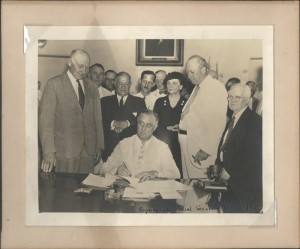By Candy Waites and John Crangle
Common Cause of South Carolina (a member of the SC Progressive Network)
Twenty years after we learned the details of Operation Lost Trust, a federal sting operation that caught legislators, lobbyists and state employees in a net of bribery and drugs, we have a new scandal: Operation Misplaced Trust.
The intense media attention and public outrage that grew out of Lost Trust led to the passage of the State Ethics Act, which banned lobbyists’ gifts to public officials, limited campaign contributions by amount, sources and uses, and attempted to prevent the use of public office for personal gain. Both of us worked hard to pass the act and, as advocates for governmental reform, regarded it as an important accomplishment.
We knew even then that the reforms fell far short of what was needed, but we did not foresee the many nefarious schemes that big-money interests and political opportunists would concoct — or how lax enforcement and lenient interpretations of the act would render it less effective.
Though it was a first step in the critical need for reform, the act was fundamentally flawed. The contribution limits were too high — $1,000 per donor for non-statewide and $3,500 for statewide offices. Corporations were allowed to donate (a practice banned for federal candidates since 1907). Political action committees were allowed to contribute, and the number of PACs was unlimited. Enforcement of the act concerning legislators was left in the hands of the Legislature rather than the State Ethics Commission. Disclosure requirements contained loopholes. Even with restrictions, campaign funds were allowed to be used for non-campaign purposes. Finally, no plan for public financing of elections was considered.
In short, the Ethics Act has created a false confidence in officials and enforcement — a Misplaced Trust.
After 20 years, big corporations and PACs remain the dominant source of campaign money. In fact, some candidates get almost all of their money from big business — telecommunications, banks, insurance, trade associations, real estate, auditors, drug companies, hospitals, doctors and lawyers. PACs have proliferated; even the speaker of the House has a PAC, pumping hundreds of thousands from big donors to receptive legislators. Some candidates for governor receive millions from special interests, much of it from outside the state where dozens of companies all owned by the same person deliver large sums of money to candidates.
Disclosure provisions of the act are dodged. Money is often sent to candidates a few hours before or even after the election to prevent voters from knowing the sources, amounts and uses. Legislative caucuses take in millions but don’t disclose who gave the money or how it was used. Independent expenditures by out-of-state interests buy campaign ads backing candidates without disclosing where the money is coming from.
And of course, enforcement has been lenient and ineffective. The House and Senate Ethics committees have never publicly disciplined a member for violation of the act since it took effect in 1992. The State Ethics Commission determined that Gov. Mark Sanford could use more than $500,000 of his campaign funds to pay his legal costs in fighting ethics charges and impeachment, even allowing him to spend nearly $150,000 to settle some three dozen charges with the commission. All this under a clause in the act that says it is OK to use campaign funds for “ordinary and necessary” expenses relating to office.
In the good ol’ days of Operation Lost Trust, lobbyists and big-money interests could ply legislators and executives with unlimited free liquor, drugs, food, golf trips and cash. Campaign money could be used for any purpose and, in fact, was often pocketed. Bribes were handed out in cash, sometimes $100 to a small-time legislative flunky, sometimes as much as $75,000 to a big-time fixer.
The days of do-it-yourself, every-person-for-himself bribery and extortion are gone forever, free-lancing corruption a thing of the past. Since Lost Trust, our politicians have institutionalized the ways in which big money buys legislation. In place of the pay-off to legislators and individuals, we now have lump-sum payments to leadership PACs and caucuses, which in turn pay the money down from legislative bosses to those who do the voting on command.
And worst of all, today big money often determines who runs for office, who gets elected and what officials do when they take office. We know that change is constant, and if we are to have ethical and financial accountability, it is time for the Legislature to overhaul the Ethics Act of 1991.
Waites was a member of the House-Senate conference committee that drafted the final version of the Ethics Act in 1991. Crangle, executive director of Common Cause/South Carolina since 1986, was the only lobbyist who lobbied for the act.







